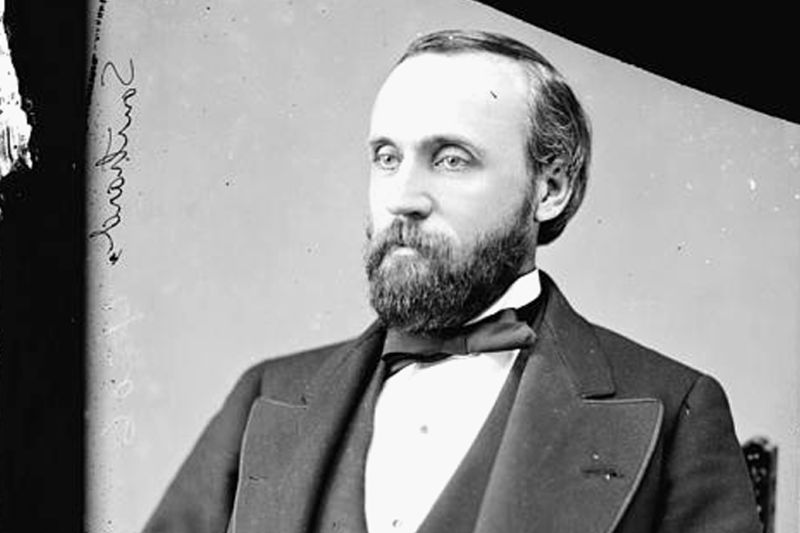Historian believes political roles have been reversed
Back on Aug. 7, 1875, Milton I. Southard, U.S. representative from Ohio, gave a lengthy speech in Canal Dover. The speech is currently available via the Library of Congress at www.loc.gov/item/12010372/. At the time, the speech served as a commentary, supporting both the Democratic platform of the time and views on business and manufacturing in Ohio.
According to the Biographical Directory of the United States Congress, Southard was born in Hanover, Licking County, on Oct. 20, 1836. Southard completed preparatory studies there and graduated from the Denison University in Granville, where he studied law. Southard was admitted to the bar in 1863 and began to practice in Toledo.
Several years later Southard became the prosecuting attorney for Muskingum County, serving from 1867-71. Southard then ran and was successfully elected as a Democrat to the 43rd, 44th and 45th Congresses from March 4, 1873, through March 3, 1879.
During his time in Washington, Southard served as chairman of the committee on territories (44th Congress). As he campaigned during that term on that warm summer day in Canal Dover in 1875, he spoke of the Republican Party’s expansion of the national debt: “The national debt stands in almost its original proportions. Taxation weighs down with increased force upon the shoulders of the people. Economy is banished from the public service. Extravagance and corruption are everywhere prevalent, and business and trade are utterly paralyzed.”
In a time before the federal income tax (established in 1913), Southard spoke of the decrease in government revenues and the current Republican administration’s response:
“Through the depression of business, the revenues, in the meantime, have largely fallen off. Customs receipts have decreased from $206,270,408 in 1871 to $163,103,833 in 1874 and the internal revenue from $143,098,152 in 1871 to $102,409,784 in 1874. They have so far diminished that last year they were insufficient to defray the ordinary expenses of the government. To meet this exigency, prudence would have dictated a curtailment of expenses. But a Republican Congress did not pursue this wise course. Instead of diminishing expenditures, it increased taxation.”
Southard felt the Republican Party also was heavy-handed on financial and business regulation: “To promote the prosperity of the people, a sound and sufficient medium of exchange is indispensable. This the Republican Party has failed to furnish, and business is prostrate. It is now nearly two years since the beginning of the financial crisis. It still continues. Its heavy hand is upon all the industries — the manufactory, the workshop and the field have lost their life and activity.”
Southard also criticized the liberal money policies of the day — creating something similar to today’s inflation. There was no Federal Reserve Bank; it too was founded along with the federal income tax in 1913.
He said, “The policy of the Republican Party is to force resumption of specie payments through further contraction of the currency. It favors the retention of the national bank notes and the retirement and cancellation of all the legal-tenders. This increases the annual interest on the public debt $20 million. To this whole policy we stand opposed, believing it will result most disastrously to business. We say stop the further contraction of the currency.”
Following a lengthy audit of government finances, Southard closed his speech with this: “Faith and further contraction, and give us once more Iocal government in the states, honesty and economy in the public service, and a conservative financial policy, with currency sufficient for the wants of business, and we shall again attain peace, prosperity and plenty.”
Like any good reporter and historian, I will let you, the reader, compare and contrast Southard’s words and Democratic positions from 1875 with today’s political parties and their current policies.
They may help you make an informed vote this November and understand that even back in 1875, one had to study policy and positions on both sides of the political aisle to come to an informed conclusion. While space doesn’t permit me to present the Republican platform of the day, I can safely say there appears, in my view, to be a reversal of the Democratic/Republican policies and party platforms of 1875 when compared to those both parties hold, respectively, today.

